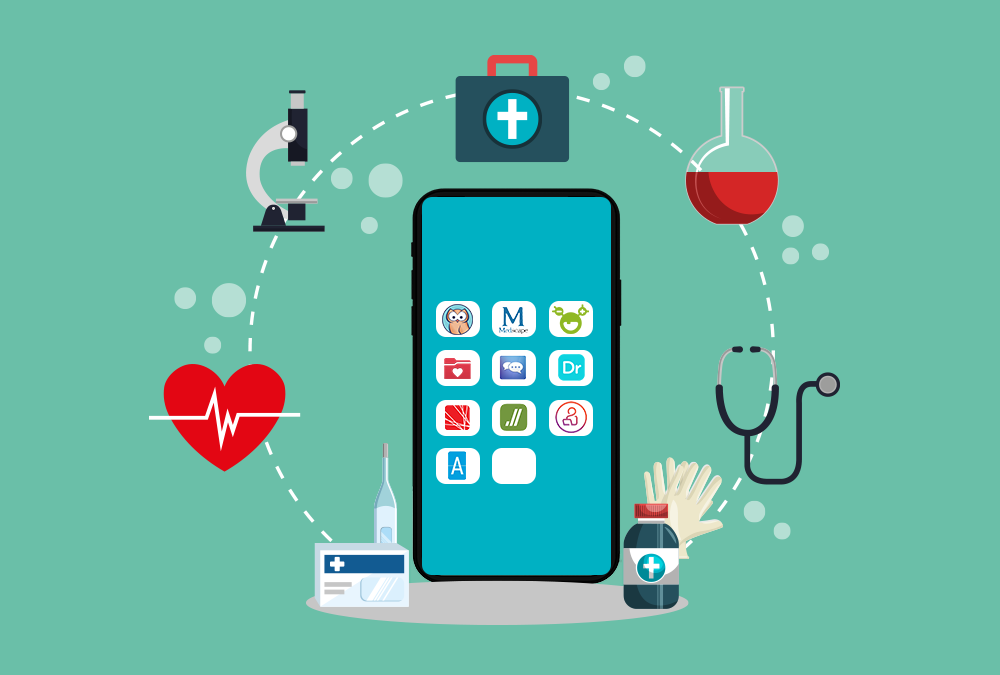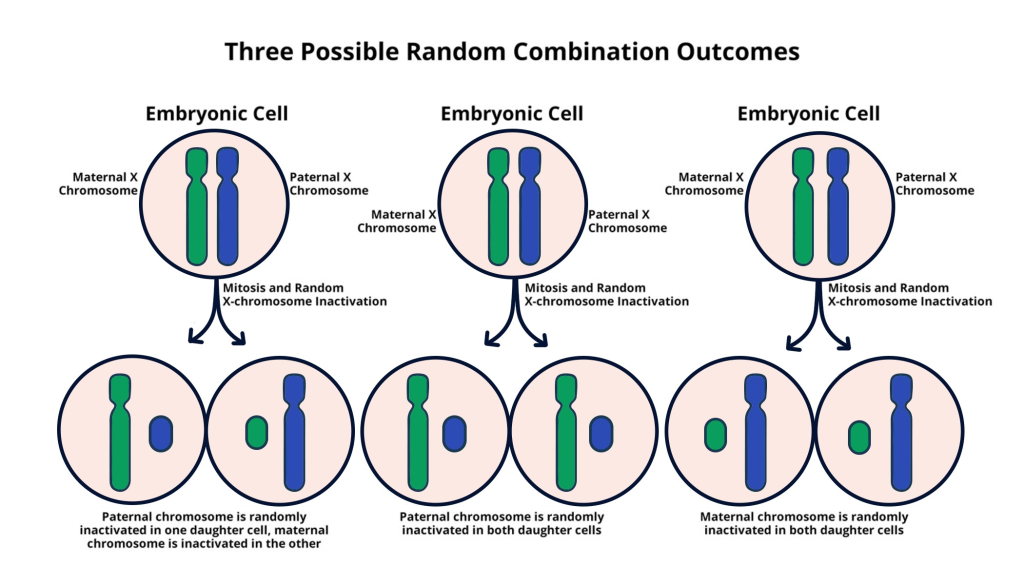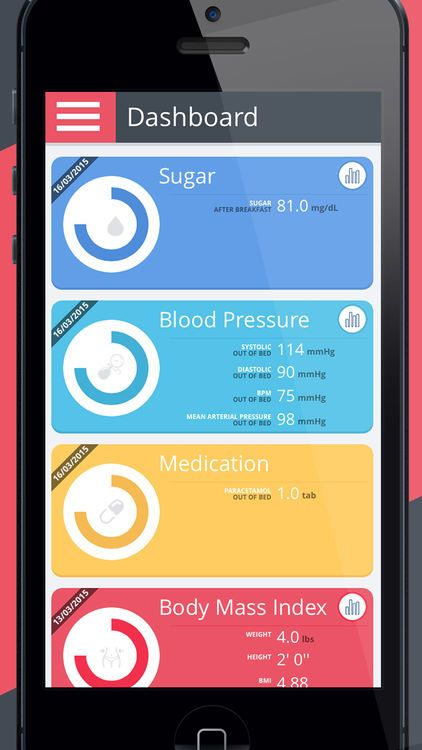
In today’s fast-paced world, healthcare apps are revolutionizing how individuals manage their wellness, providing innovative solutions to meet diverse health needs. These personalized healthcare apps utilize advanced technologies to tailor support and guidance, especially for patients confronting chronic conditions like cancer. By integrating reinforcement learning algorithms, healthcare applications can dynamically adjust to each user’s specific requirements, enhancing the effectiveness of interventions. Whether it’s through digital health coaching or cancer support apps, these tools strive to empower users, giving them the resources they need right when they need them. The era of adaptive intervention apps signifies a major leap forward in how we approach health management, making personalized care accessible right from our smartphones.
Digital wellness tools, particularly mobile applications designed for healthcare, are increasingly gaining traction among users seeking tailored health solutions. These advanced applications employ sophisticated algorithms to deliver customized support to patients facing various medical challenges, such as those recovering from cancer or managing chronic illnesses. With the rise of digital health coaching, these platforms are transforming traditional healthcare methods, making them more accessible and engaging for users. Moreover, innovations like adaptive intervention apps enhance the user experience by adjusting the provided resources based on real-time feedback and individual progress. Ultimately, this domain is reshaping our understanding of healthcare accessibility and personalized care.
The Rise of Personalized Healthcare Apps
The advent of personalized healthcare apps marks a significant revolution in the way patients manage their health. These innovative applications utilize advanced technologies such as reinforcement learning algorithms to offer tailor-made recommendations, ensuring that each individual’s unique needs are addressed. By continuously adapting to user behaviors and situations, personalized healthcare apps provide a level of customization that generic health apps simply cannot compete with. The result is a more engaged user, likely to stick with treatment plans, ultimately leading to improved health outcomes.
For instance, patients recovering from serious conditions like cancer can benefit immensely from personalized healthcare apps that provide instant support and motivation, addressing the common challenge of medication adherence. Unlike traditional apps that offer a one-size-fits-all approach, these applications analyze patterns in user interactions and automatically adjust their strategies to maintain relevance and effectiveness. This is crucial for patients navigating the complexities of their health journeys, where personal circumstances can change rapidly.
Innovative Cancer Support Apps and Their Importance
In the past, cancer patients often relied on generic advice and support, leaving many to struggle with medication regimens that are pivotal for recovery. However, with the introduction of cancer support apps, patients now have access to tools designed specifically to cater to their unique challenges. These applications utilize advanced algorithms to provide real-time support, reminders, and guidance that are crucial when managing treatment protocols and side effects. The focus of these cancer support apps is to transform the recovery experience, turning what is often a lonely journey into a more supported and interactive process.
Moreover, cancer support apps facilitate communication between patients and their caregivers, fostering a collaborative environment that is essential for effective recovery. By integrating features such as motivational messaging and educational resources about treatment, these applications not only empower patients but also provide caregivers with tools to better manage their loved ones’ health needs. As research continues to validate the effectiveness of these apps, they are proving to be not just valuable resources but essential components of the modern healthcare framework.
The Role of Reinforcement Learning Algorithms in Healthcare
Reinforcement learning algorithms are at the forefront of healthcare technology, enabling real-time adaptability in user interactions. These sophisticated algorithms analyze data generated from user inputs to refine and enhance the support offered by healthcare apps. For example, by learning which reminders are most effective at prompting action, these algorithms can tailor notifications to ensure patients receive the right message at the right time. This adaptability is particularly beneficial in healthcare settings where user engagement can significantly influence treatment adherence.
The application of reinforcement learning in healthcare apps highlights the potential for more effective and responsive interventions. By continuously adjusting to the user’s evolving needs and preferences, these algorithms can help individuals stay on track with their health goals. Moreover, as data accumulates, these apps improve their functionalities, thereby ensuring a constantly evolving user experience that is increasingly aligned with the user’s health journey.
Digital Health Coaching: The Future of Patient Support
Digital health coaching represents an exciting frontier in patient care, providing a user-friendly and accessible way for individuals to receive support in managing their health. These platforms utilize digital tools to coach users through lifestyle changes and treatment adherence, effectively acting as personal health consultants. Unlike traditional coaching, digital health coaching can be tailored to individual needs, offering exactly what users require based on their current health situations and goals.
The integration of technology into health coaching has proven to be a game-changer, particularly for those navigating chronic illnesses or lifestyle changes. By leveraging data from user interactions, these digital platforms ensure ongoing adjustment of their coaching strategies, fostering a more effective relationship between technology and patient care. This not only enhances user engagement but also maximizes the chances of achieving desired health outcomes.
Adaptive Intervention Apps: Meeting Patient Needs in Real-Time
Adaptive intervention apps are transforming the landscape of healthcare by providing support that is as dynamic as the patients they serve. These applications are designed to respond to shifts in user behavior and context, allowing for interventions that are precisely timed and contextually relevant. By recognizing when a patient may need encouragement or additional information, these apps lead to better adherence to treatment plans and overall health management.
For example, in the development of apps for cancer patients and their caregivers, the ability to adapt messaging and support based on real-time data is proving invaluable. This approach ensures that patients do not feel overwhelmed or unsupported, as the app adjusts to provide motivation and information precisely when needed. As developers continue to refine these adaptive intervention models, the potential for improving patient adherence and satisfaction in healthcare is becoming increasingly clear.
Improving Caregiver Communication with Support Apps
Effective communication between caregivers and patients is crucial for successful health management, especially in cases involving complex medication regimens. Support apps specifically designed to enhance this interaction can bridge the communication gap, ensuring that caregivers are kept informed and equipped to provide optimal support. Through features such as shared calendars, medication reminders, and real-time updates, these applications foster a sense of partnership in health management.
The importance of these caregiver support apps cannot be overstated, particularly as many caregivers bear the significant responsibility of managing treatment protocols. By utilizing technology to facilitate communication, these apps not only help in tracking medication usage but also in enhancing the emotional connection between patients and caregivers. As these tools become more prevalent, we can expect stronger support systems for patients dealing with chronic illnesses.
Harnessing AI for Enhanced Patient Engagement
Artificial Intelligence (AI) is making waves in the healthcare sector, particularly in enhancing patient engagement through innovative applications. By analyzing user data and learning from interactions, AI-powered apps are capable of creating personalized experiences that encourage users to take an active role in their healthcare journey. This technology allows for the design of interfaces that respond to user behaviors and preferences, making it easier for patients to stay engaged with their health.
The integration of AI into healthcare apps is particularly useful in developing personalized health plans that adapt as users progress. For instance, patients utilizing cancer support apps benefit from content that evolves based on their treatment responses and overall health changes. This ongoing customization supports users in maintaining motivation and adherence to their health objectives, ultimately leading to more successful health outcomes.
The Impact of User-Friendly Health Applications
User-friendly health applications have become essential tools in the modern healthcare landscape, significantly improving the accessibility and usability of medical resources. An intuitive design encourages users to interact with their health platforms regularly, fostering habits that promote better health management. As patients increasingly turn to their smartphones for health tracking, the emphasis on user experience becomes critical in ensuring these applications are effective.
Moreover, by simplifying complex health information and making it easily digestible, user-friendly health apps contribute to improved patient outcomes. When users can quickly access the information they need, whether it’s medication instructions or health tracking data, they are more likely to adhere to their treatment plans. This ease of use can empower individuals, help reduce anxiety associated with managing health conditions, and ultimately lead to better engagement and compliance.
Future Directions in Healthcare Technology
The future of healthcare technology is poised for transformative changes, driven by continuous advancements in AI and machine learning. As developers refine algorithms and enhance application functionalities, patients can expect increasingly tailored experiences that cater to their unique health contexts. The focus will shift toward creating integrated ecosystems where various health apps communicate with each other, providing comprehensive support across a spectrum of needs.
Additionally, as research confirms the effectiveness of personalized healthcare apps and adaptive interventions, healthcare providers are likely to adopt these technologies to improve patient engagement and satisfaction. The integration of healthcare apps into traditional medical frameworks could lead to more holistic treatment approaches that prioritize patient preferences and experiences. As we move forward, the intersection of technology and healthcare promises to yield unprecedented opportunities for improving health outcomes.
Frequently Asked Questions
What are personalized healthcare apps and how do they improve patient adherence?
Personalized healthcare apps utilize algorithms to tailor health support based on individual needs, making them more effective than traditional health apps. By using reinforcement learning algorithms, these apps adjust recommendations in real-time, helping patients adhere to medication regimens and health protocols, particularly in complex cases like cancer treatment.
How do cancer support apps utilize digital health coaching?
Cancer support apps incorporate digital health coaching to provide personalized guidance and motivation for patients. They use algorithms to adapt their messaging based on user interaction, ensuring that support is delivered at critical times when patients need it most.
What role do reinforcement learning algorithms play in adaptive intervention apps?
Reinforcement learning algorithms are at the core of adaptive intervention apps, allowing the software to learn from user behavior over time. This leads to customized interventions that evolve to meet the changing needs of users, significantly enhancing the effectiveness of health management.
What functionalities can be expected from adaptive intervention apps for cancer patients?
Adaptive intervention apps for cancer patients can offer functionalities like medication reminders, motivational prompts, and interactive features that encourage communication between patients and caregivers. These apps utilize real-time data to provide support precisely when it’s needed, improving overall care quality and adherence.
How can digital health coaching through healthcare apps benefit caregivers of cancer patients?
Digital health coaching in healthcare apps benefits caregivers by providing them with essential tools and information to manage patient care effectively. These apps facilitate communication and support strategies, making it easier for caregivers to assist patients through their treatment journey.
How is machine learning utilized in healthcare apps to enhance user experience?
Machine learning is utilized in healthcare apps to analyze user interactions and adjust features accordingly. This results in a personalized user experience that improves the engagement and relevancy of health-related notifications, reducing the likelihood of users ignoring important reminders.
Why are healthcare apps preferred over traditional coaching for cancer management?
Healthcare apps are preferred over traditional coaching because they are more accessible and affordable. Many patients may not have the means or desire for a personal coach, making these digital solutions an excellent alternative for ongoing health support, particularly during treatments like cancer care.
What is the significance of just-in-time adaptive interventions in healthcare apps?
Just-in-time adaptive interventions are significant because they provide support precisely when it’s needed, based on real-time data. This approach enhances patient engagement and adherence by acknowledging that health needs can change frequently, particularly during critical recovery periods.
| Feature | Details |
|---|---|
| Target Users | Cancer patients, cannabis users, and others requiring medication support |
| Main Objective | Improve adherence to medication and lifestyle changes through personalized support |
| Technology Used | Reinforcement learning algorithms for real-time adjustments |
| Key Features | Motivational prompts, social support integration, and gaming elements |
| Current Projects | ADAPTS HCT for stem-cell transplant patients, MiWaves for cannabis users, Oralytics for dental hygiene |
| Research Collaboration | Partnerships with University of Michigan, Northwestern University, and Proctor and Gamble |
Summary
Healthcare apps are revolutionizing the support available to patients, offering a means of personal assistance that fits in their digital lives. By leveraging advanced algorithms and a personalized approach, developers like Susan Murphy and her team are creating applications that not only help users adhere to medication regimens but also tackle issues like dental hygiene and substance use. These innovative healthcare apps are designed to engage users effectively, fostering both health and wellness in ways that traditional methods could not.


